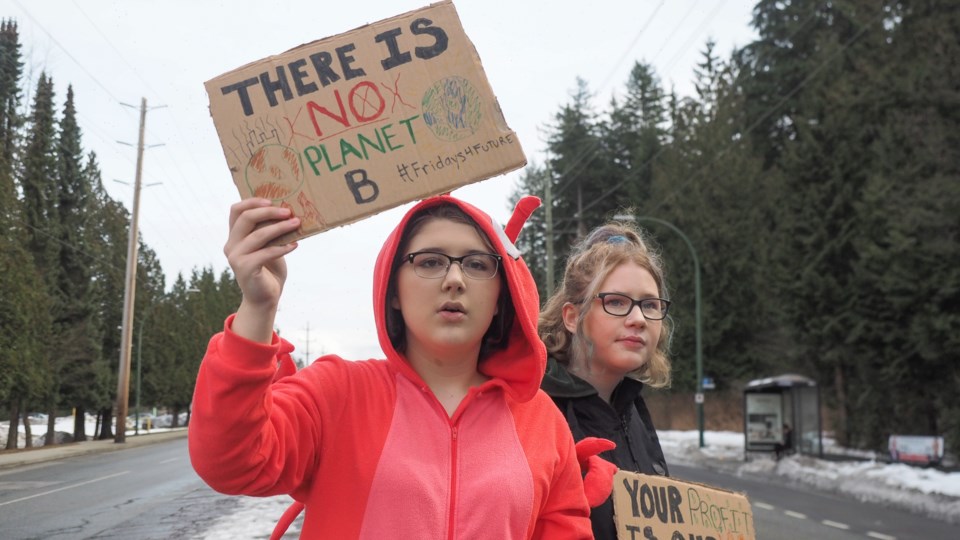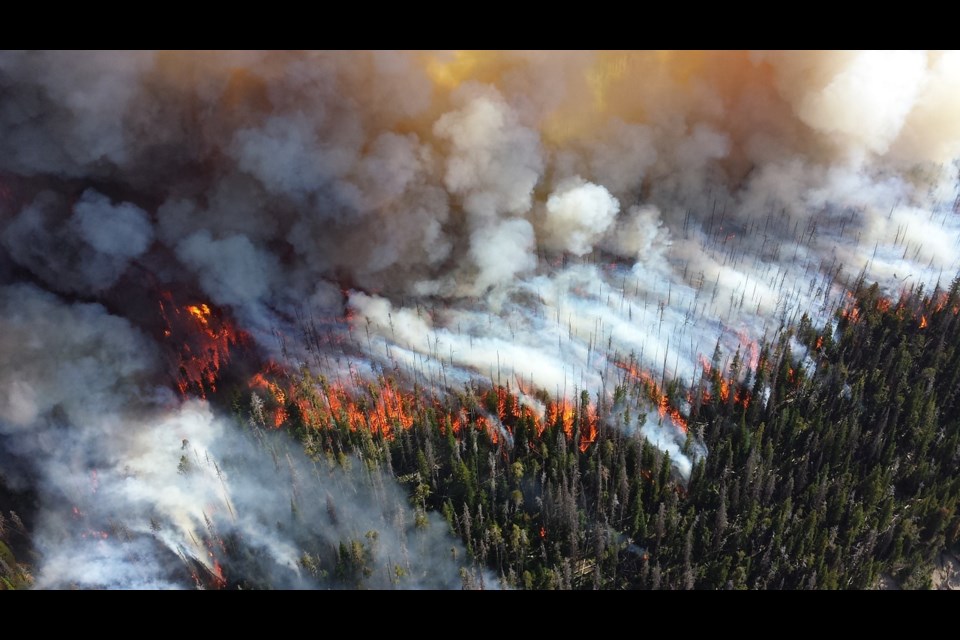Despite calls for Coquitlam to join other municipalities in declaring a climate change emergency during a town hall meeting, council resisted in favour of continuing to make the changes it can on a local basis.
“We really want to take action other than just declaring it,” Mayor Richard Stewart told a resident who asked for the declaration and to send it to oil companies around the world.
Stewart had a staff member outline all the measures being taken by the city, including requiring all new development to install an electric vehicle charger for every residential unit, and its goals for the future.
Coun. Craig Hodge chairs the city’s sustainability and environmental advisory committee as well as being vice chair of Metro Vancouver’s zero waste committee.
“We have a lot of issues that face the city. It was interesting and gratifying to see residents are recognizing that we need to protect our environment and the air we breathe and to see what we can do to tackle the problem,” Hodge told The Tri-City News.
He said the city has to worry about not only greenhouse gas emissions but climate change’s effect on Coquitlam, including having to deliver more water during hotter summer months, fending off wildfires from spreading into the city’s urban areas, as well as slope stability caused by increased rain and stream runoff.
“We have a lot of issues that are going to affect us locally,” said Hodge.
Another resident asked for council to consider banning plastic bags and straws. Hodge said to be effective those measures should be carried out at either a provincial or regional level, pointing out it is something Metro Vancouver is looking at doing in the near future.
“There really has to be a regional approach to this, and the same with the climate,” said Hodge. “We have to work together on mitigating this. I don’t think anyone is immune.”
Coun. Trish Mandewo told a resident the city could help in another way by championing environmental measures, such as eliminating plastics, with restaurants and stores.

Climate change has been a hot-button issue across the Tri-Cities this week. On Tuesday, Port Moody voted to send letters to 20 major oil and gas companies seen to be some of the largest contributors to global emissions in the world.
Across Metro Vancouver, rising sea levels are expected to cost about $9 billion, according to a 2012 provincial report. But as more evidence becomes available, that number is expected to grow.
“This is turning municipalities into first responders because they pay the bill to upgrade the storm sewer system, because they fund cooling centres in the summer and emergency storm shelters under storm situations,” said Anna Barford, a community organizer with Georgia Strait Alliance, one of the community groups organizing and lobbying municipalities to join the letter writing campaign.
As climate change gains political traction at the local level, scientists at Environment and Climate Change Canada released a new study reporting that Canada is warming twice as fast as the rest of the world. Since annual average temperatures were first recorded in Canada in 1948, they have increased by 1.7 C. The largest increases in temperature have been recorded across the north, prairies and northern B.C., where average annual temperatures have jumped by about 2.3 C.
The report warns that global warming will lead to more extreme weather across the country. Hotter temperatures could mean more wildfires and droughts, and rising sea levels combined with more intense rainfall could lead to increased flooding.
While summers in the Tri-Cities have been significantly drier in recent years, winter and spring precipitation has been increasing. Those trends are set to continue in coming years, with 11% more rain by 2050 and 20% more by 2080.



